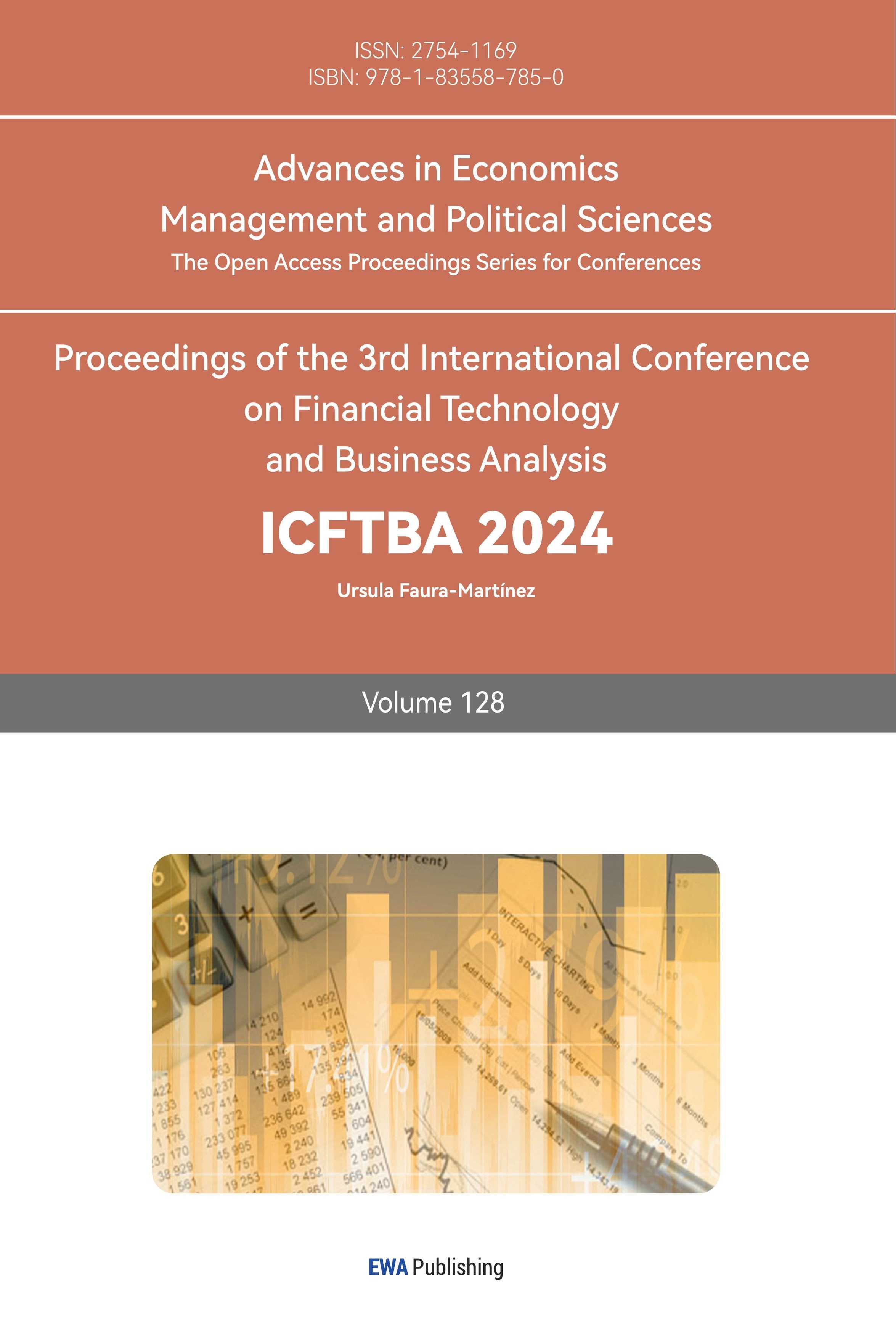1. Introduction
As we know, people from different cultures worldwide have unique admiration when it comes to idols to meet the tastes and needs of the public. For example, the Korean Wave, Hollywood, and the anime culture from Japan are some of the most dominant examples. [1] China’s fan system is based on the strong base of the Chinese population and economic development, which has become an emerging and untapped market. It is also a treasure trove of potential that industry experts are beginning to recognize, driven by the passionate support of dedicated fans who channel their admiration into economic powerhouses.
The fan economy is built on the relationship between fans and idols and creates a profitable behavior, serving as one of the business modes for enhancing consumer trust. This, in turn, generates economic and social benefits. The fan economy operates on emotional and tangible levels, with fans at its core. Brands and industries build trust by promoting icons and engaging with the emotional values of fans, ultimately driving profits. The concept of 'cashing' refers to turning values in other fields into cash, maximizing the fan effect's profit.
The article will analyze the phenomenon in a systematic way, starting with the definition of the Chinese fan economy, its scale, and its several identical spheres: the star, the IP (Intellectual Property), the influencer sphere, and the brand sphere. Each sphere has its own system chain, work mode, and operation methods. The passage will also contain a portrait of the target community.
2. Fundamental theories and development of Chinese fans
2.1. What is Fan economy?
Fan economy refers to business income-generating behavior based on the relationship between fans and followers. It is a business operation model that increases user stickiness and obtains economic and social benefits through word-of-mouth marketing.
The essence of the fan economy is the C2B economy (Customer-To-Business), that is, supply on demand or production based on sales. Users’ reservations are accepted before the products are officially launched, and the design of corporate products is increasingly based on the summary of direct user needs. For example, the second strategy is to maximize the C2B strategy, as the Korean music industry is primarily based on the fan service industry. The industry sells physical albums, digital songs, official merchandise, concerts, product endorsements, and even official fan club registrations.
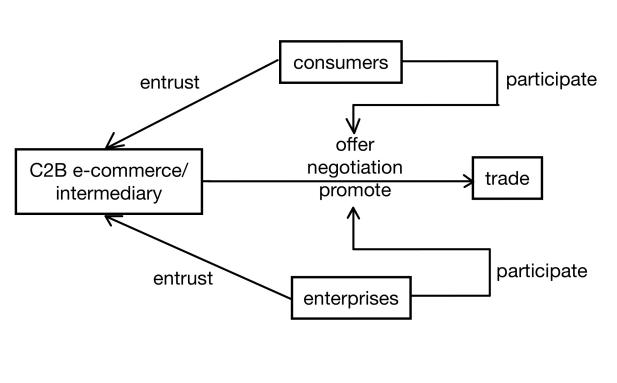
Figure 1: C2B system for the fan economy.
Also, the voting mechanism for China’s elimination variety shows now requires fans to prove their ideas with actions, using “support” that can be purchased with cash to boost the rankings of their favorite contestants. People have mixed reactions to this, with some calling it a clever marketing strategy by sponsors and others saying it is a slippery slope bordering on exploitation. Those viewers who believe they can control the fate of the contestants are now being harvested by various platforms and companies.
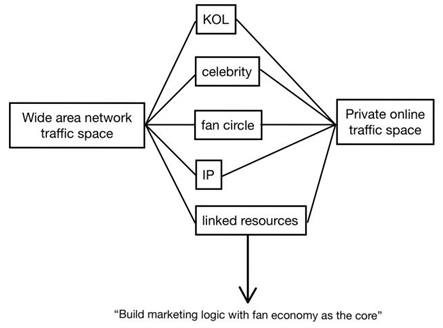
Figure 2: The formation process of fan groups.
2.2. The formation process of fan groups
The wide-area traffic space includes all Internet users, which is the most basic traffic group without accurate preferences.
Consumers in the wide-area traffic follow various subdivided pan-entertainment content, resulting in wide-area traffic diversion, entering various small circles, and finally forming private traffic spaces in each circle. This is the process of fan group formation. For example, when a new Internet user is browsing the Internet, he pays attention to a star and becomes interested. So, the user spontaneously tracks the star's information, posts relevant information on his social platform, or communicates with other fans.
When the user repeatedly performs the above behaviors at a larger scale, the fan group of the star being followed is also established, that is, the star's private traffic space.
Establishing the private traffic space of each circle through communication between fan groups increases fan stickiness and forms a stable fan group. The economic benefits created by converting fan attention traffic into purchased traffic are the fan economy phenomenon.
2.3. The fundamental logic of fan economy
Fan economy mainly obtains economic and social benefits at two levels: economic and spiritual.
From the spiritual level, idols, as the sustenance of fans' cognition and emotions, have an impact on fans' lifestyles and behaviors.
From the economic level, the amount of sharing and communication between fans has greatly increased the stickiness between fans, retained a stable consumer group, and promoted the development and consumption of idol-related industries.
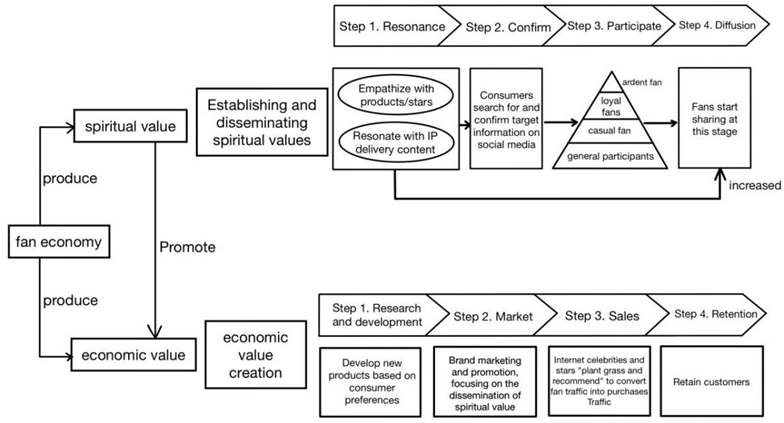
Figure 3: The fundamental logic of fan economy.
In short, fans are the core of the fan economy. Brands or companies increase consumer recognition and stickiness by building fans' spiritual value, ultimately increasing economic benefits.
The establishment of spiritual value is the foundation of fan economy. After social media guides wide-area traffic and conducts the four steps of resonance, confirmation, participation, and diffusion, the spiritual value generated by the "fan" object in the fan group is completed.
When the fan traffic reaches a certain level, the process of traffic monetization will begin. The logic of monetization is that companies and brands will develop products in a targeted manner according to fans' preferences, advertise them, sell them to Internet celebrities and stars, and finally retain customers with services. The direct monetization of celebrity products follows the same principle. The agency develops a series of celebrity peripherals, fan meetings, or concert ticket products based on the fans, then conducts marketing and sales, and finally retains the customers.
At present, the fan economy is diverse. It extends beyond TV stars to include brand fans, virtual idol fans, and social platform fans. As a result, the fan economy is evolving from a single economic phenomenon into a comprehensive business model.
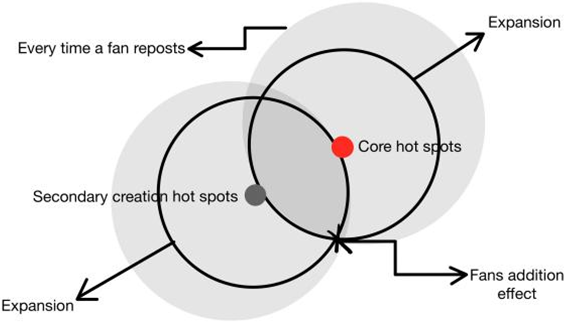
Figure 4: Fans Addition Effect.
2.4. The route of fan economy
The formation of a fan economy requires the combination of two paths, dissemination and realization, to achieve economic benefits. The fan effect will form a superimposed effect due to the spontaneous forwarding and secondary creation of fans. The realization of the fan effect is generally the realization of physical sales and online traffic.
For example, when Chinese artists see unexpected or impressive scenes in national variety shows or film and television programs, some will choose to re-edit to gain traffic, while others will choose to imitate and develop abstract behaviors into a culture. This not only makes the newly created videos popular but also accumulates multiple times to make the original core hot spots become hot searches.
3. Analysis of the current status of various parts of China's fan economy
In this section, we will analyze the four spheres of China’s fan economy in depth. For each sphere, we will review the different stages of its development and their characteristics. [2]
3.1. Celebrity sphere
The fan economy of the celebrity sphere can be divided into four stages.
First, in the 1.0 era, fans worshipped celebrities one-way and spontaneously. At this stage, the monetization ability of the fan economy was very limited, and fans had almost no voice.
In the 2.0 era, public relations teams or companies for celebrity marketing and word-of-mouth marketing began to appear and helped celebrities attract fan groups. The fan economy at this stage was mainly monetized by selling celebrity peripheral and direct products.
Then, in the 3.0 stage, fan stickiness continued to increase, and a follow-up consumption model began to take shape. At this stage, celebrities began to live broadcast and sell goods, directly turning fan traffic into consumption traffic.
After the 4.0 stage, fans' voices continued to rise, and they began to have organizational, influence, and communication power. At this stage, fans can directly promote the development of celebrities, and the benefits of a fan economy are maximized.
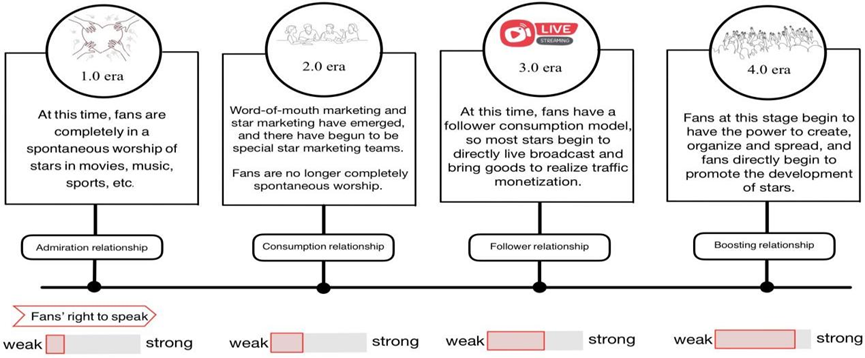

Figure 5: The history of the celebrity-fan-economy changes.
The development of the fan economy in the celebrity circle has so far changed the relationship between celebrities and fans from "stars attract fans" to "fans create stars." This change has also brought greater development space for the fan economy in the celebrity circle.
Table 1: Celebrity circle monetization method. [3]
Monetization Method | Form of Expression | Examples | Key Impact Indicators |
Direct Sales | Direct sales of star works | Movie tickets, concert tickets, albums, posters, magazines | Quality of works, fan base size, fan purchasing power |
Platform Economy | Earnings through platforms | Live streaming rewards, copyright buyouts | Platform size, competition ranking, distribution method, base income |
Spontaneous Economy | Self-funded participation in activities | Meet-and-greet, autograph sessions, charity crowdfunding | Fan base size, fan purchasing power, fan type, activity type |
Cooperative Economy | Revenue sharing with third parties | Live streaming sales, advertising revenue, offline promotions | Daily active users, platform commission rate |
Additional Economy | Other profit methods | Merchandise sales, paid consultations, educational fees, self-run company income | Personal abilities of the star, star's influence |
In fan economy monetization in the celebrity circle, "fan fundraising" behavior is relatively common. Fundraising efforts by fans are often used to purchase well-known products. This demonstrates the purchasing power of the star's fan base to the production and operations team, encouraging them to allocate more resources to the star they are supporting.
The industry chain of the celebrity circle is divided into the upstream incubation layer, the midstream production and operation layer, and the downstream channel layer; the upstream incubation layer mainly includes various entertainment companies, which are mainly responsible for celebrity incubation and management; the midstream operation layer includes the production and advertising operation of celebrity products; the downstream channel layer is mainly the platform for the release of works.
3.2. IP sphere
The chart below summarizes the development of the IP sphere and the significant events related to it.
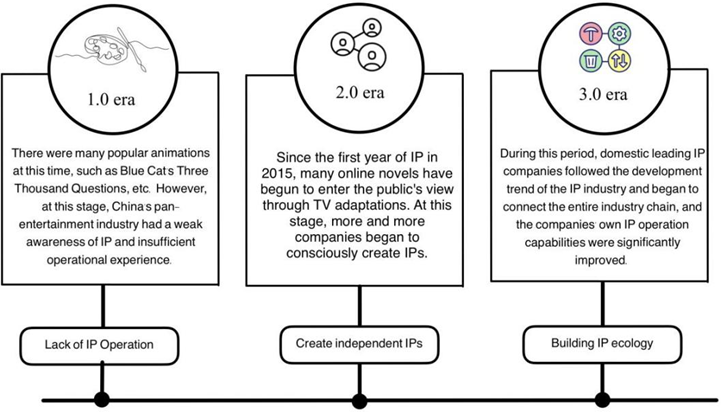

Figure 6: The history of IP-fan-economy changes.
China's IP industry started late and has gone through three stages: lack of IP operation before 2015, creation of independent IP from 2015 to 2020, and construction of IP ecology from 2021 to now; the monetization ability of fan economy under IP circle has been continuously improved, and the monetization method has evolved from the early sales of animation image peripherals to the current formation of IP ecology.
Table 2: IP circle monetization method. [3]
Monetization Method | Form of Expression | Examples | Key Impact Indicators | Common IP Types |
Direct Sales | Direct sales of works | Movie tickets, comic publications, novel publications, official merchandise sales | Quality of works, audience size, IP fan base size | All IP Types |
Adaptations | Cooperation with film, animation, and game producers | Copyright sales, revenue sharing | Fan purchasing power, fan base size, reputation of adapted works | Game IP, Literary IP |
Co-branded Products | Collaborations with various well-known brands to launch co-branded products | Sales of co-branded clothing, shoes, hats, bags, electronics, cosmetics, blind boxes, toys | Brand fan base size, IP fan base size, revenue sharing ratio | All IP Types |
Spontaneous Economy | Earnings from self-organized online and offline activities | Fan meetings, comic and novel signings, comic conventions | Fan base size, fan purchasing power, fan type, activity type | Animation IP, Literary IP, Film IP, Game IP |
Platform Economy | Earnings through platform rewards, memberships, dividends, etc. | Work rewards, copyright buyouts, platform membership fees, work viewing rights purchases | Platform size, revenue sharing method, distribution ratio, base income | Film IP, Trendy Toys IP, Animation IP, Literary IP |
Cooperative Economy | Revenue sharing with third parties using traffic as a carrier | Advertising revenue, sponsorship income | Production team strength, IP creation quality, fan base size | Variety Show IP |
Offline Deployment | Deployment of physical scenes offline | Sales from self-operated amusement parks, "pop-up shop" souvenir shops, experience service fees | IP fan base size, fan purchasing power, promotional effort | Animation IP, Literary IP |
The industry chain of the IP circle is divided into upstream IP design, midstream IP product production and downstream consumption channels and consumer groups; upstream IP design companies are mainly museums, animation companies, trendy toy companies, etc.; midstream IP product production includes trendy toy companies, game companies, toy manufacturing, etc., as well as co-branded brands.
Although IP monetization channels are abundant, China’s IPs worth hundreds of billions of yuan are scarce and monetization efficiency is low. This is mainly due to the drawbacks of current IP development.
3.3. Internet celebrity(Influencer) sphere
The chart below summarizes the development of the Influencer sphere and the significant events related to it.
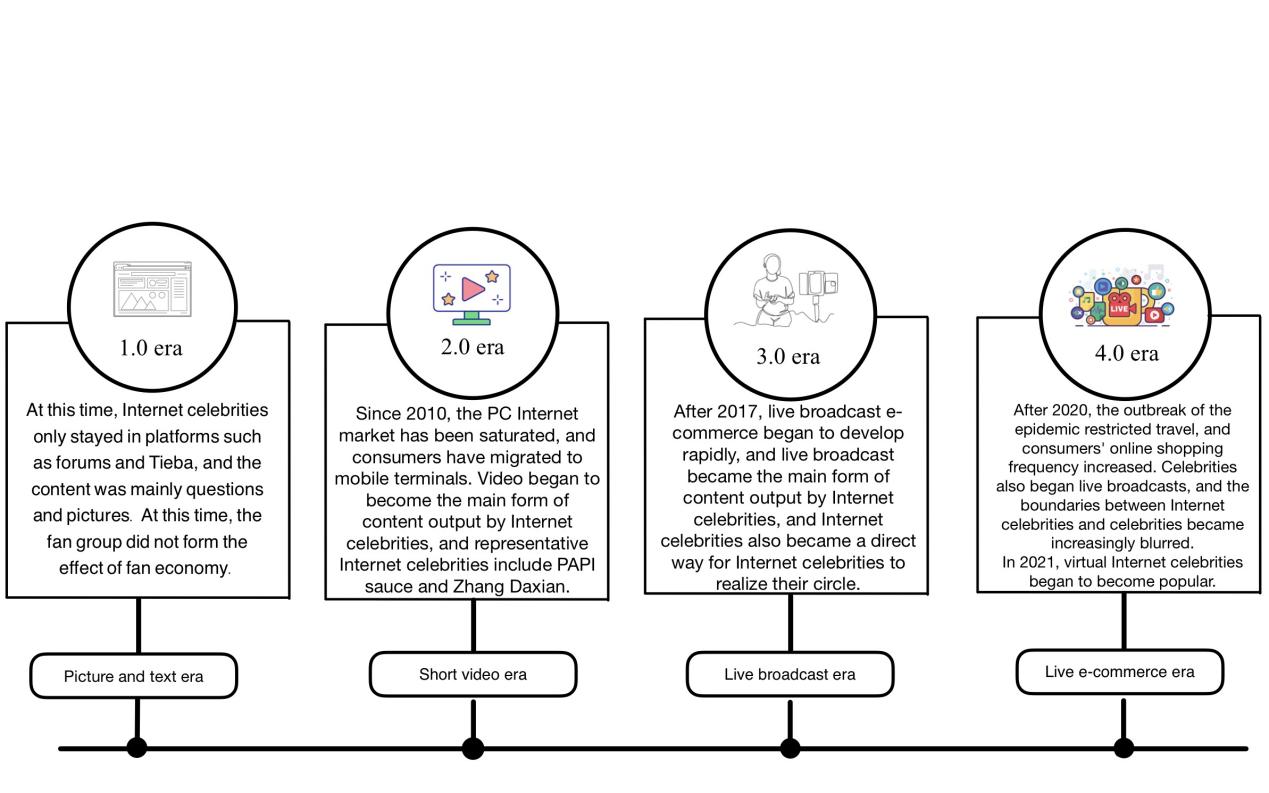
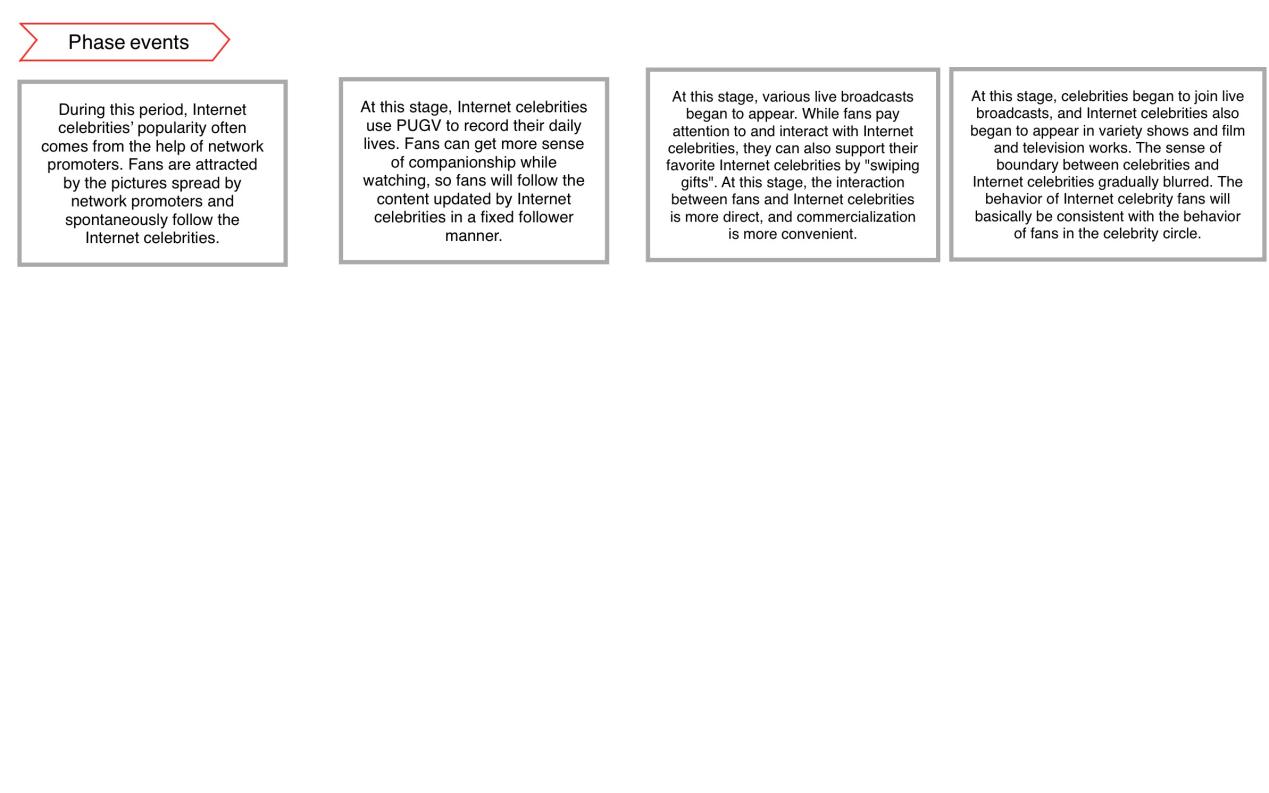
Figure 7: The history of Influencers-fan-economy changes.
As a result, the number of Internet celebrities continues to increase, the scale of the Internet celebrity live broadcast market continues to grow, and the number of fans in the Internet celebrity circle continues to accumulate. The Internet celebrity circle is the fastest monetizing circle in the fan economy.[4]
The industry chain of the Internet celebrity circle is divided into the upstream Internet celebrity incubation link, the midstream Internet celebrity signing link, and the downstream traffic realization link; the upstream Internet celebrities operate their own accounts and accumulate basic fan groups; in the midstream Internet celebrity signing link, MCN companies will choose to sign with Internet celebrities with better traffic data, and then realize traffic in the downstream link.[3]
Table 3: Influencer circle monetization method. [3]
Monetization Method | Form of Expression | Examples | Key Impact Indicators |
Platform Economy | Earnings through platform rewards, memberships, dividends, salaries | Live streaming rewards, copyright buyouts | Platform size, competition ranking, distribution method, distribution ratio, base income |
Spontaneous Economy | Self-funded participation in online and offline activities | Meet-and-greets | Fan base size, fan purchasing power, fan type, activity type |
Cooperative Economy | Revenue sharing with third parties using traffic as a carrier | Live streaming sales, advertising revenue, offline promotions | Daily active users, platform commission rate |
Additional Economy | Other profit methods | Starting MCN companies, paid knowledge sharing | Influencer's impact |
The fan economy monetization model of the Internet celebrity circle is relatively limited, including platform economy, spontaneous economy, cooperative economy and additional economy. The main monetization of Internet celebrities comes from platform and cooperative economy, such as platform rewards, advertising placement, and live streaming sales.[3]
3.4. Brand sphere
The chart below summarizes the development of the Brand sphere and the significant events related to it.
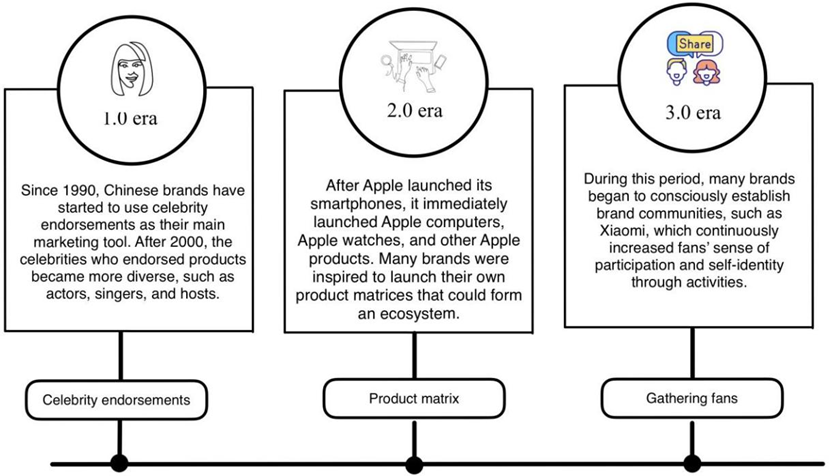

Figure 8: The history of Brand-fan-economy changes.
There are many ways to gather fans in a brand circle, such as providing interactive services and building a brand image, but the most effective way is to establish a fan community. In building a fan community, brands will use marketing methods to intervene in fans' search for groups and guidance.[5]
Brands employ various methods to gather fans, with the most effective being the creation of fan communities. Xiaomi exemplifies this by engaging fans in developing its MIUI system and creating a large "Mi-fans" base. [6] Initially, consumers discover brand communities through searches or recommendations, seeking information to reduce uncertainty. As they understand the community, they develop cultural and emotional connections, leading to ritualistic behaviors like daily sign-ins. These behaviors solidify brand identity and foster social networks, forming the brand's "invisible capital." Brands guide and convert ordinary consumers into fans by co-creating content, sharing social influence, offering exclusive services, and establishing a brand persona, as seen with luxury brands like LV and Chanel.
4. Analysis of Fan Groups in China's Fan Economy
4.1. Characteristics of Chinese fans
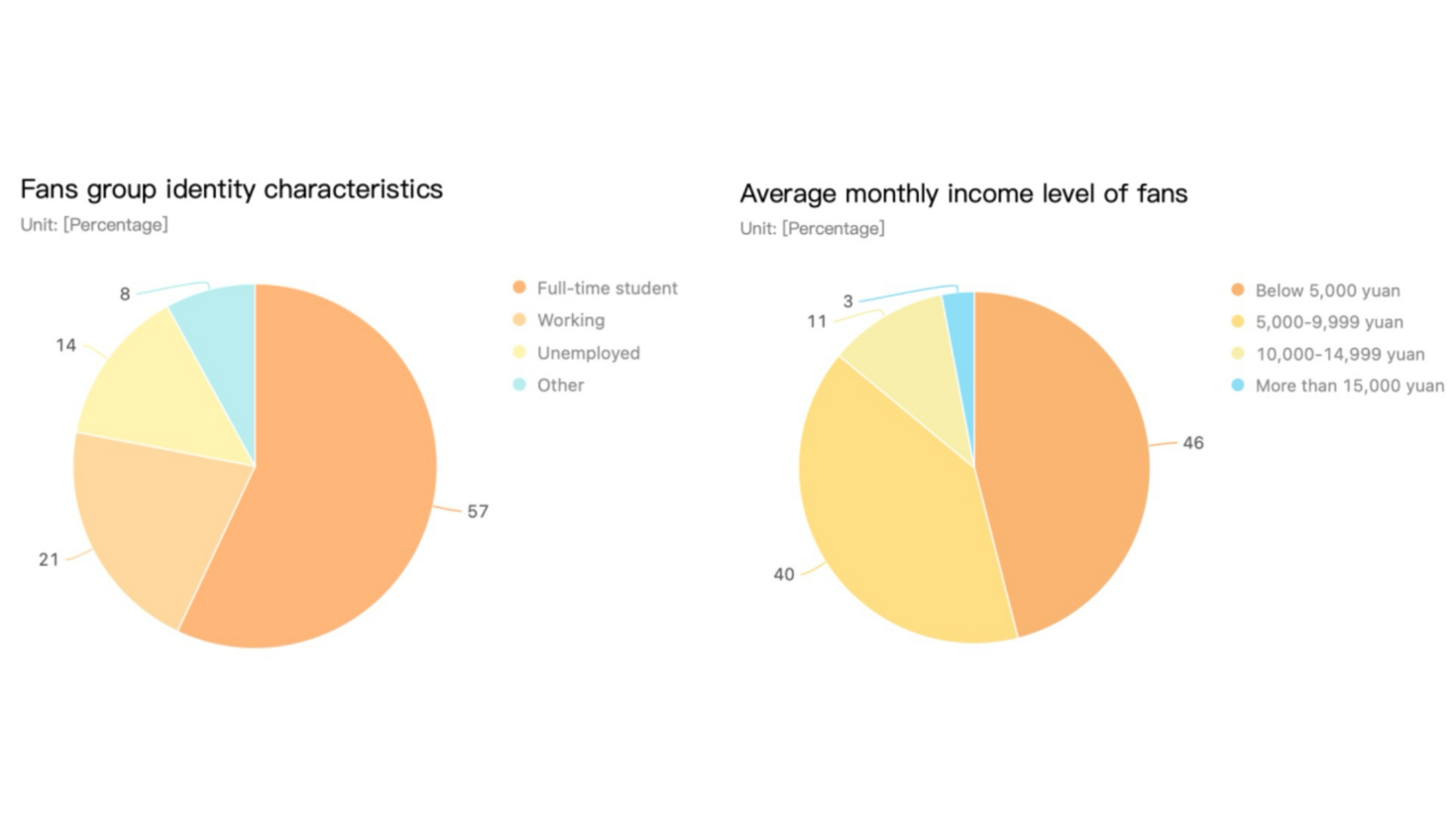
Figure 9: Chinese fans group analysis statistics. [3]
Figure9: 46% of the fans surveyed have an average monthly income of less than 5,000 yuan, and their consumption level is relatively limited. 57% of the fans surveyed are students, and 21% are office workers.
Among the fans surveyed: [7]
90% of the respondents said they had "star-chasing" behavior.
42% of the fans come from first-tier or new first-tier cities.
51% are women, 49% are men.
71% of the fans are born in the 90s and 00s.
68% of the fans have a bachelor's degree or above.
Due to the good economic development of first-tier and new first-tier cities, they can attract a large number of young working population. Because of the continuous gathering of the young popula the large consumer base of the pan-entertainment industry, the pan-entertainment market in first-tier and new first-tier cities is larger, and fan groups are easier to gather.
The fan group as a whole is young and has a high level of education, but most fans are still students, so the consumption level is not too high.
As the fan circle continues to enrich, it can meet fan groups of different genders and preferences, so the ratio of men to women in the fan group is relatively balanced.
4.2. Analysis of fan group preferences
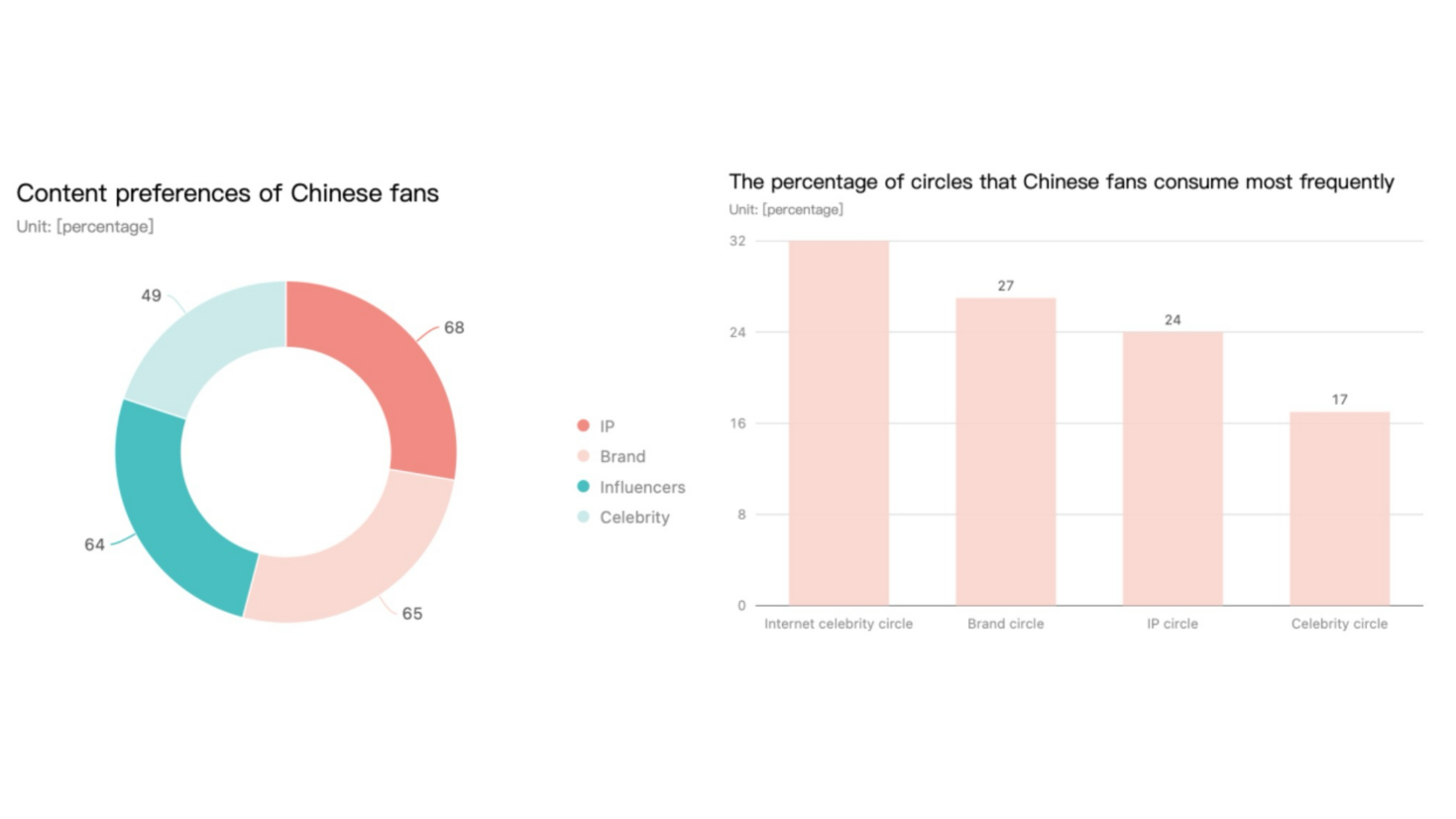
Figure 10: Chinese fans preferences analysis statistics.
The characteristics of the Internet celebrity circle are that the fan group size is relatively small, but the consumption frequency is relatively high. Some fans in the surveyed fan group are not fans of the Internet celebrity, but have consumption behavior. The potential reasons may include:
First, the Internet celebrity's monetization method is mainly live broadcast, and the efficiency of live broadcast itself in converting wide-area traffic into purchased traffic is relatively high;
Second, the dissemination efficiency of Internet celebrity content is relatively high, and it is easier to reach a large number of consumer groups. Hence, Internet celebrities are more likely to obtain more consumer groups. [8]
4.3. Behavioral characteristics of Chinese fans
According to fan group survey data, Chinese fans are mainly motivated by the content and spirit of the work. The star's personality, internet celebrity, or famous person is also one of the incentives for fans to "chase stars." Chinese fans' "chase star" cycle is relatively short, and most fans' "chase star" cycle is concentrated from six months to two years. [9]
Chinese fans’ attitude towards their favorite circles is basically focused on information exploration, works, and the desire for interaction. Fewer fans invest a lot of time and money in "chasing stars." In terms of the preferences and methods of "chasing stars," Chinese fans focus on the information of the circle and the works themselves.
Social media platforms are an important communication channel for various fan economic circles. They attract and convert a large number of wide-area fan groups. The process of an account accumulating fans can be divided into three periods: the fan accumulation period, the fan volume floating period, and the fan duration period. [10] The fan duration period of a single account is relatively long.
Likes and comments are the primary interaction between fans and celebrities, Internet celebrities, brands, or IP accounts. The like rate and comment rate represent the level of fan activity. Taking Instagram, an internationally popular social media platform, as an example, the process of an account accumulating fans can be divided into three periods. [11] Although the number of fans is low in the fan accumulation period of an account, the fans who have just followed the account are more active. In the fan volume floating period, fans who have accumulated fans in the early stage of the account will lose fans or their comments will decrease. During the fan duration period, loyal fans in the account continue to stay, and fan activity begins to stabilize. [12]
5. Conclusion
China's fan economy is an emerging market driven by passionate fans, whose support is transformed into huge economic strength. By leveraging the relationship between fans and idols, brands and businesses can create targeted products, use social media to spread widely, and achieve significant results through multiple channels, such as celebrity endorsements, online influencers, IP cooperation, and brand communities of monetization. The evolution of the fan economy from one-way fan worship to fan-driven star creation highlights its dynamic nature. Although fans' financial capabilities vary, high engagement and emotional investment translate into strong economic power. The continued development of this economy reveals its potential as an integrated business model, highlighting the synergies between commerce and fan culture in the digital age.
Here are four strategies to enhance and leverage China's fan economy:
1. Develop Engaging and High-Quality Content
Strategy: Create high-quality and engaging content that resonates with the target audience. This includes diverse forms of media such as films, TV shows, music, web series, and live performances.
Implementation: Invest in talented writers, directors, and producers to ensure the content is compelling. Regularly update and release new content to keep fans engaged.
Example: Leveraging the success of popular IPs like “The Untamed” by continually releasing spin-offs, merchandise, and exclusive behind-the-scenes content.
2. Strengthen Community Building and Fan Engagement
Strategy: Foster a strong sense of community among fans by providing platforms for interaction and engagement. This includes online forums, social media groups, and fan clubs.
Implementation: Use social media platforms like Weibo, WeChat, and Douyin to facilitate interactions between fans and celebrities. Organize fan meetings, virtual events, and live chats to deepen the connection.
Example: Xiaomi’s Mi Community, where fans can discuss products, share feedback, and participate in exclusive events, creating a loyal fanbase.
3. Expand Monetization Channels
Strategy: Diversify revenue streams through direct sales, platform economy, co-branded products, and spontaneous economy activities.
Implementation: Develop merchandise, offer premium content through subscription models, collaborate with brands for co-branded products, and organize fan events.
Example: The success of co-branded products like Lay Zhang’s collaboration with Converse and organizing exclusive fan events to drive merchandise sales and premium memberships.
4. Leverage Data Analytics for Personalized Marketing
Strategy: Use data analytics to understand fan preferences and behavior, enabling personalized marketing strategies and content recommendations.
Implementation: Analyze data from social media, streaming platforms, and e-commerce sites to gather insights on fan demographics, preferences, and engagement patterns. Use this data to tailor marketing campaigns and content.
Example: Alibaba’s use of big data to recommend personalized products and content to users on its platforms, enhancing user experience and driving sales.
References
[1]. Tagrid Lemenager, Miriam Neissner ,Anne Koopmann ,Iris Reinhard ,Ekaterini Georgiadou ,Astrid Müller ORCID ,Falk Kiefer and Thomas Hillemacher “COVID-19 Lockdown Restrictions and Online Media Consumption in Germany”.
[2]. “International Business Strategy in Selling Korean Pop Music:A Case Study of SM Entertainment”, Annisa Pratamasari, Departemen Hubungan Internasional Universitas Airlangga.
[3]. “2022 Chinese Fans Economic Overview”, Main author of the report: Tong Wenhao.(2022)
[4]. “The ugly scenes behind China's talent shows”, By Chen Jing, Shanghai Correspondent, Lianhe Zaobao. https://www.thinkchina.sg/society/ugly-scenes-behind-chinas-talent-shows
[5]. Liang, Y., & Shen, W. (2016). Fan economy in the Chinese media and entertainment industry: How feedback from super fans can propel creative industries’ revenue. Global Media and China, 1(4), 331-349.
[6]. Zhang, Q., & Fung, A. Y. (2017). Fan Economy and Consumption. The Korean wave: Evolution, fandom, and transnationality, 129.
[7]. Hung, K. (2020). Celebrity and influencer in a fan economy: Unfolding the fans' roles in enhancing endorsement effects. In Multidisciplinary perspectives on media fandom (pp. 323-340). IGI Global.
[8]. Duan, Y. (2022, July). The Core Logic of Fan Economy and the Trend of Business Model. In 2022 2nd International Conference on Enterprise Management and Economic Development (ICEMED 2022) (pp. 593-601). Atlantis Press.
[9]. Zivlak, N., Zhang, S., & Shi, Y. (2020). Digital marketing in China-Weibo and fan economy. In Industrial Innovation in Digital Age (pp. 185-192). Cham: Springer International Publishing.
[10]. Yin, Y. (2020). An emergent algorithmic culture: The data-ization of online fandom in China. International Journal of Cultural Studies, 23(4), 475-492.
[11]. Liao, X., Koo, A. Z. X., & Rojas, H. (2022). Fandom nationalism in China: The effects of idol adoration and online fan community engagement. Chinese Journal of Communication, 15(4), 558-581.
[12]. Zhang, Q., & Negus, K. (2020). East Asian pop music idol production and the emergence of data fandom in China. International Journal of Cultural Studies, 23(4), 493-511.
Cite this article
Jiang,Z. (2024). Strategic Insights into China's Fan Economy Synergizing Fandom and Commerce. Advances in Economics, Management and Political Sciences,128,72-84.
Data availability
The datasets used and/or analyzed during the current study will be available from the authors upon reasonable request.
Disclaimer/Publisher's Note
The statements, opinions and data contained in all publications are solely those of the individual author(s) and contributor(s) and not of EWA Publishing and/or the editor(s). EWA Publishing and/or the editor(s) disclaim responsibility for any injury to people or property resulting from any ideas, methods, instructions or products referred to in the content.
About volume
Volume title: Proceedings of the 3rd International Conference on Financial Technology and Business Analysis
© 2024 by the author(s). Licensee EWA Publishing, Oxford, UK. This article is an open access article distributed under the terms and
conditions of the Creative Commons Attribution (CC BY) license. Authors who
publish this series agree to the following terms:
1. Authors retain copyright and grant the series right of first publication with the work simultaneously licensed under a Creative Commons
Attribution License that allows others to share the work with an acknowledgment of the work's authorship and initial publication in this
series.
2. Authors are able to enter into separate, additional contractual arrangements for the non-exclusive distribution of the series's published
version of the work (e.g., post it to an institutional repository or publish it in a book), with an acknowledgment of its initial
publication in this series.
3. Authors are permitted and encouraged to post their work online (e.g., in institutional repositories or on their website) prior to and
during the submission process, as it can lead to productive exchanges, as well as earlier and greater citation of published work (See
Open access policy for details).
References
[1]. Tagrid Lemenager, Miriam Neissner ,Anne Koopmann ,Iris Reinhard ,Ekaterini Georgiadou ,Astrid Müller ORCID ,Falk Kiefer and Thomas Hillemacher “COVID-19 Lockdown Restrictions and Online Media Consumption in Germany”.
[2]. “International Business Strategy in Selling Korean Pop Music:A Case Study of SM Entertainment”, Annisa Pratamasari, Departemen Hubungan Internasional Universitas Airlangga.
[3]. “2022 Chinese Fans Economic Overview”, Main author of the report: Tong Wenhao.(2022)
[4]. “The ugly scenes behind China's talent shows”, By Chen Jing, Shanghai Correspondent, Lianhe Zaobao. https://www.thinkchina.sg/society/ugly-scenes-behind-chinas-talent-shows
[5]. Liang, Y., & Shen, W. (2016). Fan economy in the Chinese media and entertainment industry: How feedback from super fans can propel creative industries’ revenue. Global Media and China, 1(4), 331-349.
[6]. Zhang, Q., & Fung, A. Y. (2017). Fan Economy and Consumption. The Korean wave: Evolution, fandom, and transnationality, 129.
[7]. Hung, K. (2020). Celebrity and influencer in a fan economy: Unfolding the fans' roles in enhancing endorsement effects. In Multidisciplinary perspectives on media fandom (pp. 323-340). IGI Global.
[8]. Duan, Y. (2022, July). The Core Logic of Fan Economy and the Trend of Business Model. In 2022 2nd International Conference on Enterprise Management and Economic Development (ICEMED 2022) (pp. 593-601). Atlantis Press.
[9]. Zivlak, N., Zhang, S., & Shi, Y. (2020). Digital marketing in China-Weibo and fan economy. In Industrial Innovation in Digital Age (pp. 185-192). Cham: Springer International Publishing.
[10]. Yin, Y. (2020). An emergent algorithmic culture: The data-ization of online fandom in China. International Journal of Cultural Studies, 23(4), 475-492.
[11]. Liao, X., Koo, A. Z. X., & Rojas, H. (2022). Fandom nationalism in China: The effects of idol adoration and online fan community engagement. Chinese Journal of Communication, 15(4), 558-581.
[12]. Zhang, Q., & Negus, K. (2020). East Asian pop music idol production and the emergence of data fandom in China. International Journal of Cultural Studies, 23(4), 493-511.





